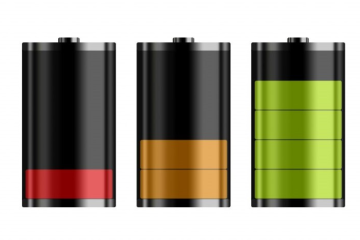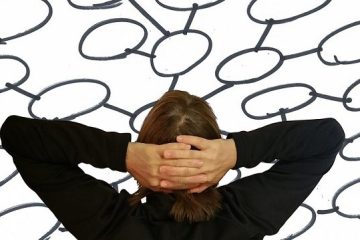
BALANCING ACTIVITY AND REST
Are you tired? You are not alone. Between 6 and 7.5% of the population is fatigued. Fatigue is one of the top ten reasons Canadians seek help from their primary care provider; up to 33% of patients report experiencing fatigue. Unfortunately, no medical diagnosis can explain it in up to half of the patients. Despite this fact, the good news is that there are therapeutic options to alleviate fatigue symptoms.

WHAT IS FATIGUE?
Fatigue is not a disease. It is rather a symptom of an underlying health condition (e.g., pregnancy, concussion, vitamin deficiency, anemia, heart condition, surgery recovery, etc.), mental health problem (e.g., stress, anxiety, bereavement, depression, etc.), treatment side effect (e.g., antidepressants, antihistamines, chemotherapy, etc.), and/or personal habit (e.g., not exercising, drinking too much coffee, not sleeping enough, etc.). Fatigue is usually multifactorial, meaning there is more than one factor (or cause) contributing to the fatigue load. Most people experience some fatigue every day. For example, it is normal to feel fatigued at the end of day. However chronic fatigue is not a normal state. In the long run, chronic fatigue can negatively impact work performance, family life, personal relationships, mood, physical performance, quality of life and recovery.

HOW IS FATIGUE TREATED?
There is no specific cure or effective medication for fatigue. The first step is always to identify the possible causes then to treat and/or optimize the contributing medical conditions (e.g., correcting anemia). Non-pharmaceutical approaches (e.g., exercise, sleep therapy [link to CBT-I article], energy management, etc.) can help boost energy levels and achieve control over fatigue symptoms.

WHAT IS ENERGY MANAGEMENT?
Energy management is not a cure for fatigue but rather a way to helping patients regain control over their fatigue symptoms by learning how to effectively save and spend their energy. Energy management is a self-management program, supervised by a trained health care provider. The goal is to find a good enough balance between work, rest, and leisure in order to decrease the energy demand on the body. It uses different cognitive and behavioural modifications to address fatigue factors, as listed below.
EDUCATION
Educating patients about their fatigue signs and the vicious cycle of fatigue is the cornerstone of energy management. It helps them develop the required awareness to better manage their energy. Keeping an energy diary and reviewing one’s lifestyle habits are important tools.
ENERGY CONSERVATION
Integrating the 4 simple steps of energy conservation can help achieve activities throughout the day while maintaining an adequate energy level. The 4 P’s (prioritizing, planning, pacing, positioning) are explored in detail in our program.
SLEEP, REST AND RELAXATION
The differences between the sleep, rest and relaxation and their relationship with stress are explored in our program. Sleep optimization is essential to achieve good energy management as almost all people with sleep problems experience fatigue. Both rest and relaxation are also essential to restore energy.
COGNITIVE RESTRUCTURING
People struggling with chronic fatigue too often avoid leisure activities to only focus on work and obligations which adds to the fatigue problem. During therapy, patients will learn to identify their priorities, set realistic expectations, and explore attitudes that promote good energy management. The success of energy management depends ultimately on the patients’ willingness to comply with the recommended strategies.

WHO IS A GOOD CANDIDATE FOR ENERGY MANAGEMENT?
All adults with chronic fatigue symptoms can benefit from energy management. Before undertaking energy management, it is necessary to have a thorough fatigue assessment in order to identify underlying medical conditions and/or drug side effects that could be causing your fatigue. Book your fatigue consultation with our expert team now. With our energy management program, you will develop the tools and acquire the skills to break the vicious cycle of fatigue, reach your goals and improve your quality of life.

ENERGY MANAGEMENT & TORONTO CONCUSSION CLINIC
Look for Energy Management for concussions near me to get started. If you are in the Toronto area, you can get assessed by our medical doctors at the Toronto Concussion Clinic’s in-person location. If deemed suitable for OHIP-Funded Energy Management Group Counselling, you will be invited to register. If post-concussion patients prefer to do energy management one-on-one, then they can book with the occupational therapist. Our occupational therapy team is not OHIP-Funded but their services may be covered by your extended health benefits. For post-concussion patients who sustained their concussions during a car accident, car insurance companies will often approve Energy Management for post-concussion fatigue; our medical team would just have to draft up a treatment plan for you to sign for submission to them.
Request your initial consultation with the Toronto Concussion Clinic and the concussion doctor will refer you to our fatigue specialists for two assessments. If you are a good candidate for Energy Management training then you can enroll in our post-TBI Energy Management program. There, you will develop the tools and acquire the skills to break old patterns and habits that interfere with your energy level, and help get your energy back.
Last update: January 2024
